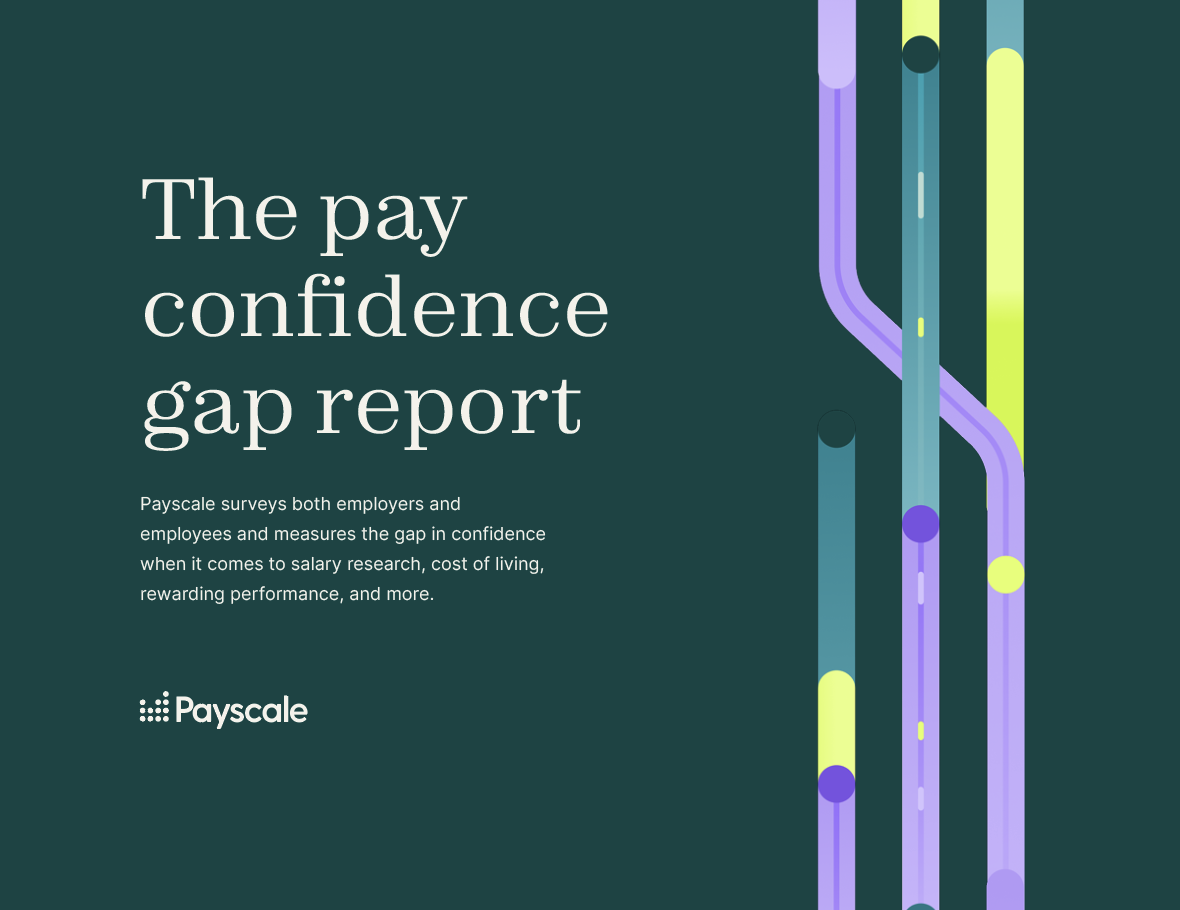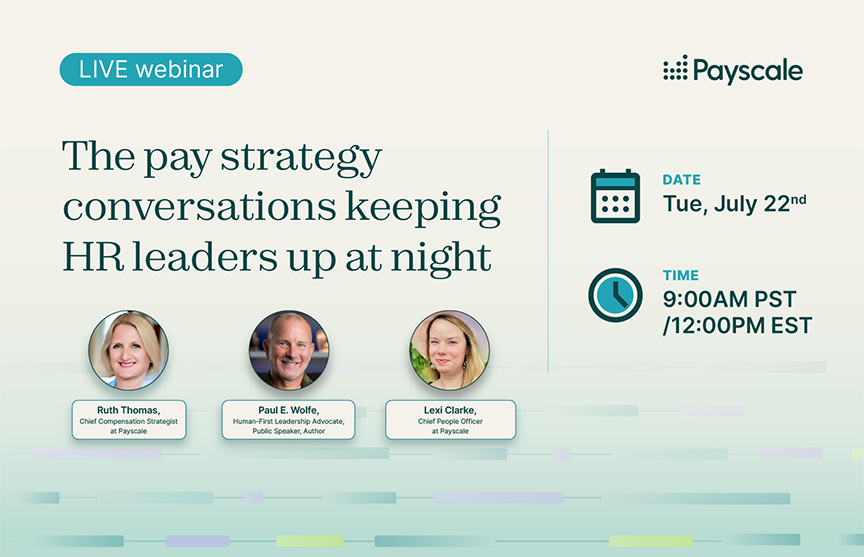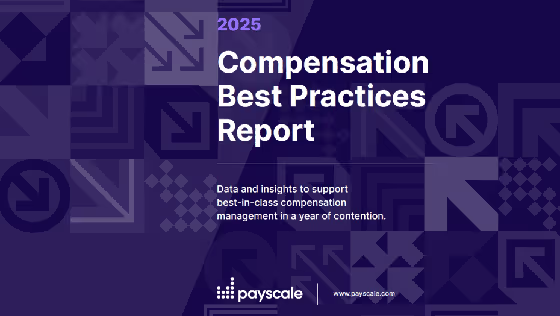Summary
When it comes to confidence in pay decisions, employers and employees are at odds. The ubiquitousness of salary information online, including from social media and AI assistants, is contributing to misinformation surrounding pay practices and creating challenging conversations for employers with employees. Forty-one percent of employees say they have never had a conversation with their current employer about how their pay is determined and why it is fair. When discussing a pay raise, more employees are consulting online sources to inform salary expectations.
To combat misinformation about salary, employers need to acknowledge the changing landscape as well as what matters to employees when it comes to pay, like cost of living, economic uncertainty, and rewarding performance. Employers need to get laser-focused in their approach to pay methodology, including investing in reliable sources of salary data and building out a comprehensive compensation strategy that balances merit-based pay with pay equity. New tools are emerging to help organizations navigate the nuances of pricing jobs and build confidence in pay decisions rooted in data.
The trust gap
Employers have greater trust that employees understand their pay decisions than is reflected in consumers when asked about how much they trust their employer’s decisions about pay. In fact, the trust gap is a whopping 24 percent.

Pay communications
Forty-one percent of employees (roughly 70 million people if we calculate our sample against the size of the U.S. workforce) do not know how pay decisions are made at their organization and a quarter are uncomfortable requesting a salary increase, which can result in inequity and either loss of talent or disengagement.


Impact on retention
Salary conversations are personal and invite injury when handled poorly. According to our survey, 66 percent of employees would consider leaving their job if a salary-related conversation with their employer went badly. Employers also report that salary-related conflicts have resulted in an increase in employee turnover, especially in larger organizations.


Employees doing their own salary research
Employees have more options than ever when it comes to conducting their own salary research, but they have less understanding of the trustworthiness of these sources than employers. While job postings are the most popular (36 percent), AI assistants like ChatGPT are being used (18 percent) and so is social media (19 percent). A strong majority of employers (72 percent) report an increase in employees negotiating salaries based on information they found online, with 70 percent citing generative AI assistants like ChatGPT specifically. Overall, 63 percent of employees say employees use unreliable sources in salary negotiations.



Economic uncertainty
Uncertainty about the health of the economy slows hiring and can damage employee relations and morale. In the 2025 economy, 53 percent of organizations expect that pay conversations will become more challenging over the next year.

Cost of living
While employers use cost of labor to determine market pricing, 88 percent of employees believe that pay for their job should align to their local cost of living and 66 percent of employers say they have seen an increase in employees challenging their pay based on geography in the last year.


Merit-based pay
Employees expect to be rewarded for their performance — or else why work their hardest? According to our survey, 76 percent of employees would consider changing jobs if their performance wasn’t reflected in their compensation package.

Impact of best practices on pay confidence
Our research shows that pay confidence makes a difference when it comes to communicating with employees and the impact on talent attraction and retention. In analyzing data from our Compensation Best Practices Report, we find that compensation strategy, pay equity, and purpose-built compensation technology contribute strongly to pay confidence.

Download the Pay Confidence Gap Report
The full report compares survey responses from both employers and employees on the trust gap in pay practices, the impact of misinformation, and how HR teams can build confidence in their pay methodology.

Methodology

To provide a comprehensive analysis of the key compensation challenges facing employers and employees, Payscale surveyed 1,000 US employees (aged 18+) and 500 US business leaders, HR leaders, and HR managers with responsibility for compensation decision-making within their organization.
The survey includes participants split evenly across small business (2-99 employees), mid-size business (100-999 employees), and large enterprise (1000+ employees). There is also segmentation by age, generation, job level, location, and industry. Not all findings are included in the report.
The survey was conducted by Censuswide online in May 2025. Censuswide complies with the MRS Code of Conduct, which is based upon the ESOMAR principles.

Using data from Payscale’s Compensation Best Practices Survey, we identified 1,679 organizations that confirmed whether or not they had adopted key best practices (compensation strategy, pay transparency, pay equity analysis, purpose-built compensation technology).
Questions include:
- “Describe your organization’s current position and 2025 target on the paytransparency spectrum” with six answer choices including None, Required,Individual, Department, Organization, and Public.
- “Is pay equityanalysis a planned or current initiative at your organization?” with answerchoices being Yes, No, Unsure.
- “Does yourcompany have a formal compensation strategy/philosophy?” with answer choicesbeing Yes, No but we are working on one, No and we are not working on one, andUnsure.
- “Whattechnology does your organization use to manage compensation today?” withpurpose-built compensation technology being one of multiple answer choices.
We compared answers to the following questions about their confidence levels:
- How confident are you that your organization's pay increases are competitive for retaining and engaging talent?
- How confident are you that your market pricing is competitive for attracting talent?
Respondents could select a confidence rating from a scale of 1 to 5: 1: Not at all confident, 2: Not confident, 3: Neutral, 4: Fairly confident, 5: Very confident.
Leveraging a binomial logistic regression model that takes into account various pay practices, we established two outcomes – confident (4 or 5) and not confident (1 or 2) – to evaluate the impact these variables have on confidence for both market pricing and pay increases.
Our analysis determined that the likelihood of pay confidence is greatly increased for organizations that adopt compensation best practices. All findings reported are statistically significant.

Payscale is the original compensation innovator for organizations who want to scale their business with pay and transform their largest investment into their greatest advantage. With decades of innovation in sourcing reputable data and developing AI-powered tools, Payscale delivers actionable insights that turn pay from a cost to a catalyst. Its suite of solutions — Payfactors, Marketpay, and Paycycle — empower 65% of Fortune 500 companies and businesses like Panasonic, ZoomInfo, Chipotle, AccentCare, University of Washington, American Airlines, and TJX Companies.
Create confidence in your compensation. Payscale.
Don't stop at the download
Join our upcoming webinar for additional expert insights and practical takeaways.


